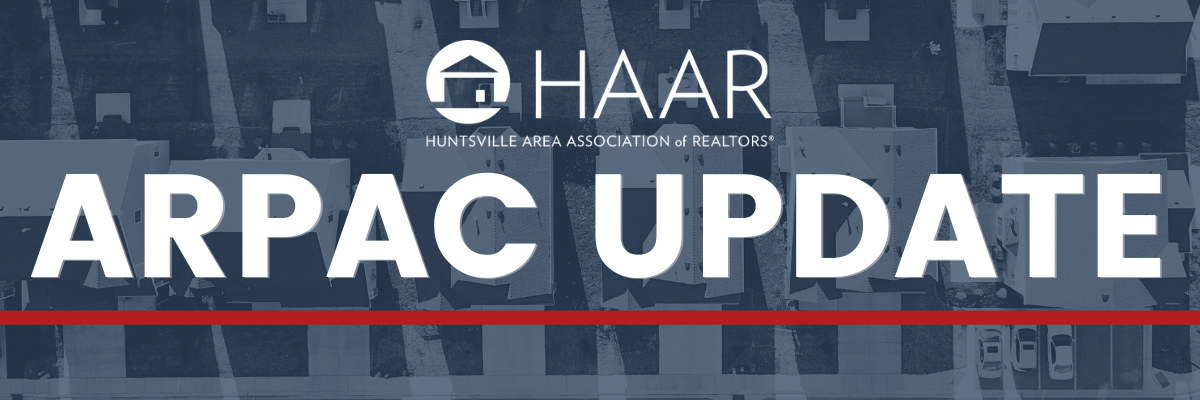HB162 by Rep. Lomax: To provide a cap in increases on Class IV property tax assessments under certain conditions (Assigned to House Ways and Means General Fund Committee). Companion bill to SB21 below.
SB21 by Sen. Givhan: To provide a cap in increases on Class IV property tax assessments under certain conditions (Assigned to Senate Finance and Taxation General Fund Committee). Companion bill to HB 162 above.
HB196 by Rep. Ingram: To authorize the Land Commissioner to contract with an online auction company to sell tax-delinquent property in the state’s inventory which has passed the three-year administrative redemption period (Assigned to House State Government).
HB198 by Rep. Brown: To create the Alabama Residential Building Code Advisory Council to recommend an Alabama Residential Building Code, to be based upon the International Residential Code and the residential chapters of the International Energy Conservation Code, to be adopted by the Home Builders Licensure Board, require counties and municipalities that enforce residential building laws or codes, when adopting new codes or amending existing codes, to adopt or amend the codes in accordance with the minimum standards set by the Alabama Residential Building Code, and would require residential home builders in this state to build, renovate, and repair residences in accordance with the minimum standards set by the Alabama Residential Building Code (Assigned to House County and Municipal Government Committee).
HB8 by Rep. Brown: To require insurers to provide at least 90 days written notice of a property insurance policy cancellation, nonrenewal, or coverage restriction (Assigned to House Insurance Committee).
HB17 by Rep. England: To increase the simplified sellers use tax rate from 8% to 9.25%, and to provide for the distribution of the additional tax proceeds to be distributed to local boards of education (Assigned to House Ways and Means Education Committee).
HB73 by Phillip Pettus: To provide for a cap on real property tax assessments under certain conditions (Assigned to House Ways and Means General Fund Committee).
SB62 by Sen. Orr: To provide for a sales and use tax exemption for purchases of certain baby supplies, baby formula, maternity clothing, and menstrual hygiene products (Senate Finance and Taxation Education Committee).
SB110 by Sen. Sessions: To limit the assessed value of certain real property for ad valorem tax purposes, with exceptions (Assigned to Senate Finance and Taxation General Fund Committee).
SB3 by Sen. Coleman-Madison: To provide a shortened redemption period for a tax delinquent property that is not acquired by an open market bidder at a tax sale auction, would authorize a local government or a local land bank authority to purchase property at public auction by tendering the minimum bid in the absence of open market bids, and would limit the geographical boundaries of local land bank authority acquisitions (Assigned to Senate County and Municipal Government Committee).




